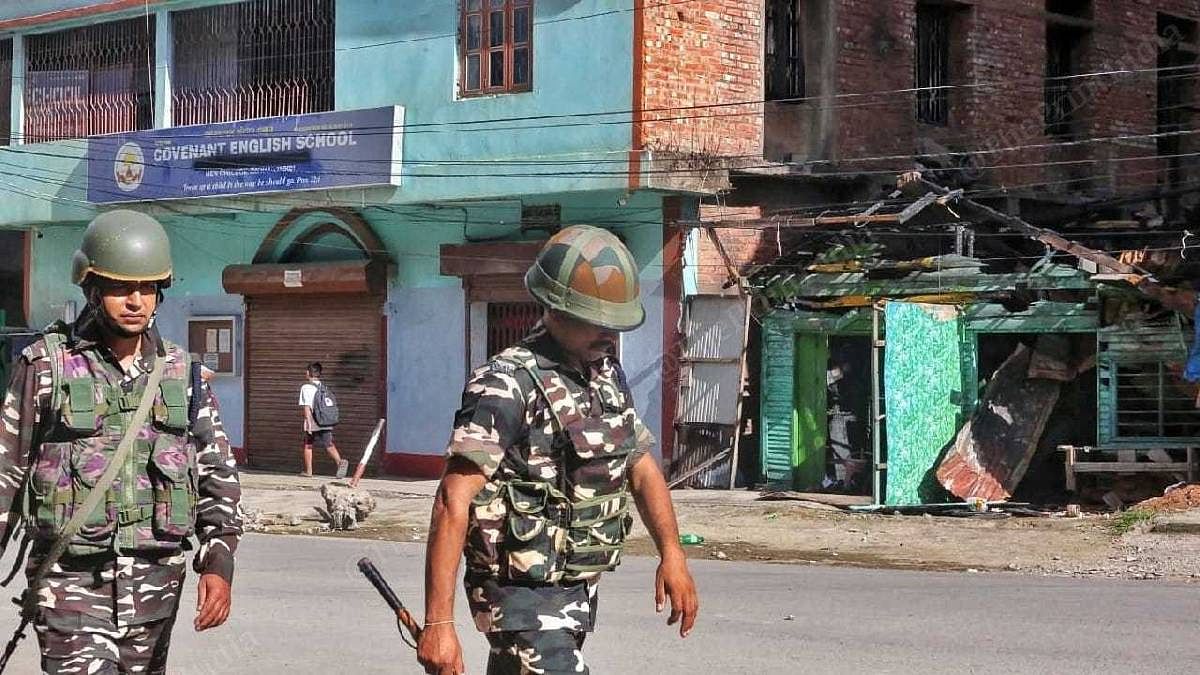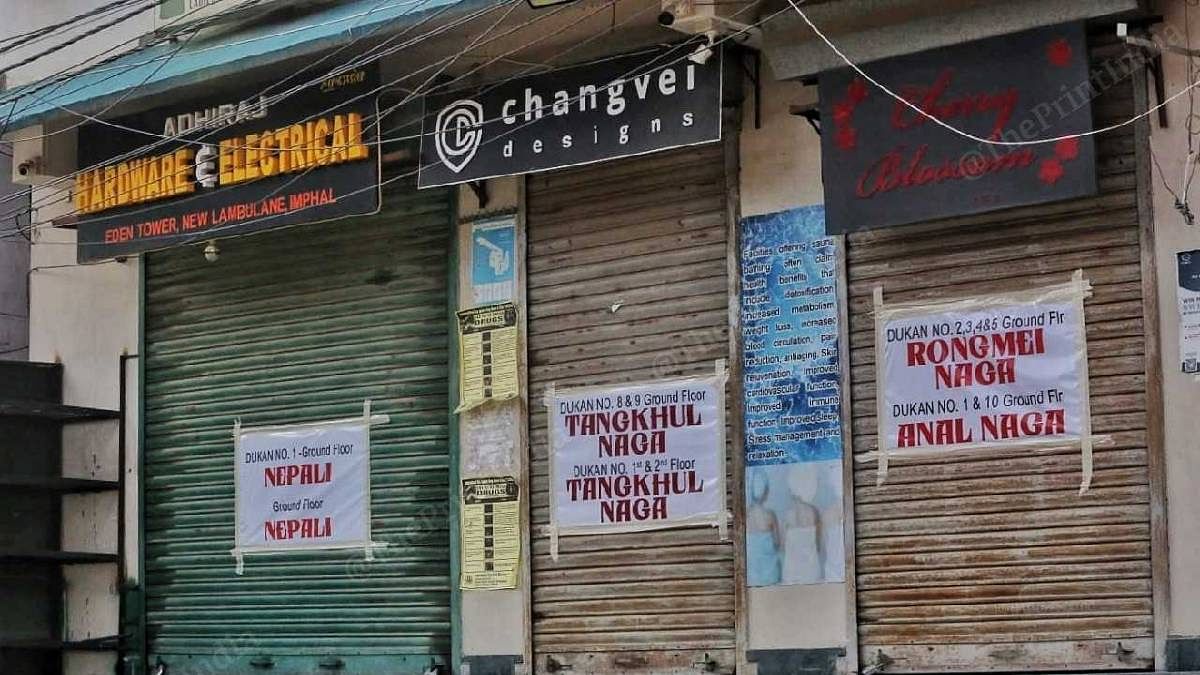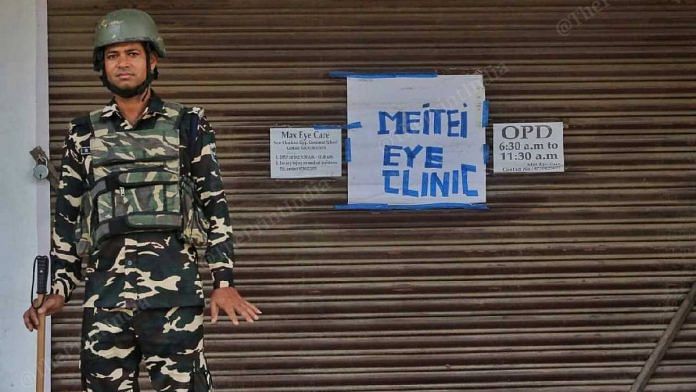Imphal: ‘Hindu ki Dukan’, ‘Meitei Eye Clinic’, ‘Dukan No 1: Nepali’ and ‘Muslim Pharmacy’ — makeshift posters and simple print-outs with these titles now adorn the walls and shutters of most shops in Imphal’s New Checkon market, highlighting the deep-seated communal tensions prevailing in Manipur.
The posters have emerged as a defensive measure, aimed at protecting the shops from targeted attacks by mobs amid ethnic violence between the tribal Kukis and majority Meitei community that first broke out in the state on 3 May.
It is alleged that mostly Meiteis have been systematically identifying and targeting the Kuki community’s properties in the area.
“These posters are markers to show that this is not a Kuki property. By looking at this property, they would know that it belongs to a Meitei and they would not touch it. This is just to ensure that the shop or the house is not attacked or burnt down by a mob,” Henry Gonmei, a Meitei who runs a grocery store, told ThePrint Saturday. He also has a poster stating “Meetei Yum” outside his shop. Yum means home.
The majority of Meiteis reside in the Imphal valley, which comprises just 10 per cent of Manipur’s land but is the most developed area, with major schools, hospitals, business hubs and universities. The remaining 90 per cent of the land, where the Kukis and Nagas reside, falls under the hill districts.
The wave of ethnic violence in Manipur has resulted in looting, arson, and the complete destruction of homes and businesses, mostly reported to belong to the Kukis, in the valley.
Such is the fear that people are feeling compelled to display their religious or ethnic affiliation on their doors to protect themselves from attacks.
“Look around, see how they have selectively burnt shops owned by Kukis,” said Lucky Ali, a Muslim who runs a shoe shop in New Checkon market, pointing at a charred shop that was burnt down by a mob on 4 May.

Adding that it was essential to put up a poster outside his shop, he explained: “The two communities, Kukis and Meiteis, have been fighting each other and we are just caught in between. I was scared that the Meiteis would burn my shop too, so I put up this poster.”
Big banners saying “Stop Kuki Narco-Terrorism in Manipur”, “Go back Kuki Foreigners”, “Go back Kuki Refugees”, have come up across the valley in market places, main junctions and even highways.

In Imphal, the Kukis were weeded out through their I-cards in colleges and workplaces and then subjected to fatal beatings and left to die. In villages which fall on the foothills, they were driven out and their houses were looted, burnt and razed to the ground, sources in the security establishment told ThePrint.
A small population of Meities who were residing in the tribal-dominated hills also came to the valley, the sources said, adding that they were driven out of their homes by the Kukis and suffered violence at their hands.

It has been two months since the violence began, but the clashes continue unabated. The violence has so far claimed over 157 lives and displaced over 50,000 people in Manipur, police data shows.
While the central government has pumped in thousands of additional security forces, including the Army, they have not been able to quell the violence.
Also Read: ‘Violence by Meiteis partitioned Manipur’ — 10 Kuki MLAs demand separate administration for tribals
‘How are we to survive this?’
With most shops being shut in Imphal valley, businesses in the area have suffered major losses.
However, a few businessmen have cautiously begun to reopen their shops, albeit for limited hours, starting Saturday.
“Whatever I earned here in the last two years, I have spent in the last two months because there was no work and no earnings. Now I will have to start from scratch,” Chandan Kumar from Bihar’s Samastipur, who works at an eatery in the market, told ThePrint.

“I really hope normalcy is restored soon. It has really hurt local businesses,” he added.
Lucky Ali agreed. “I have opened my shop after two months today but there are no customers. How are we small shopkeepers to survive this?” he asked.
Amid the escalating incidents of violence, shopkeepers in the region are staring at an uncertain future. “We are not sure if things will become normal in the coming months. This is a real crisis,” Ali said.
(Edited by Nida Fatima Siddiqui)



